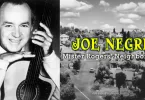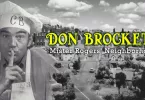Fred McFeely Rogers, better known as Mister Rogers, was an American television host, author, producer, and Presbyterian minister who dedicated his life to creating content that helped children understand the world around them. His groundbreaking television series, Mister Rogers' Neighborhood, ran from 1968 to 2001 and left a lasting impact on the lives of millions. What child (or parent) of the late 20th century doesn’t love Mr. Rogers? This is what you need to know about him.
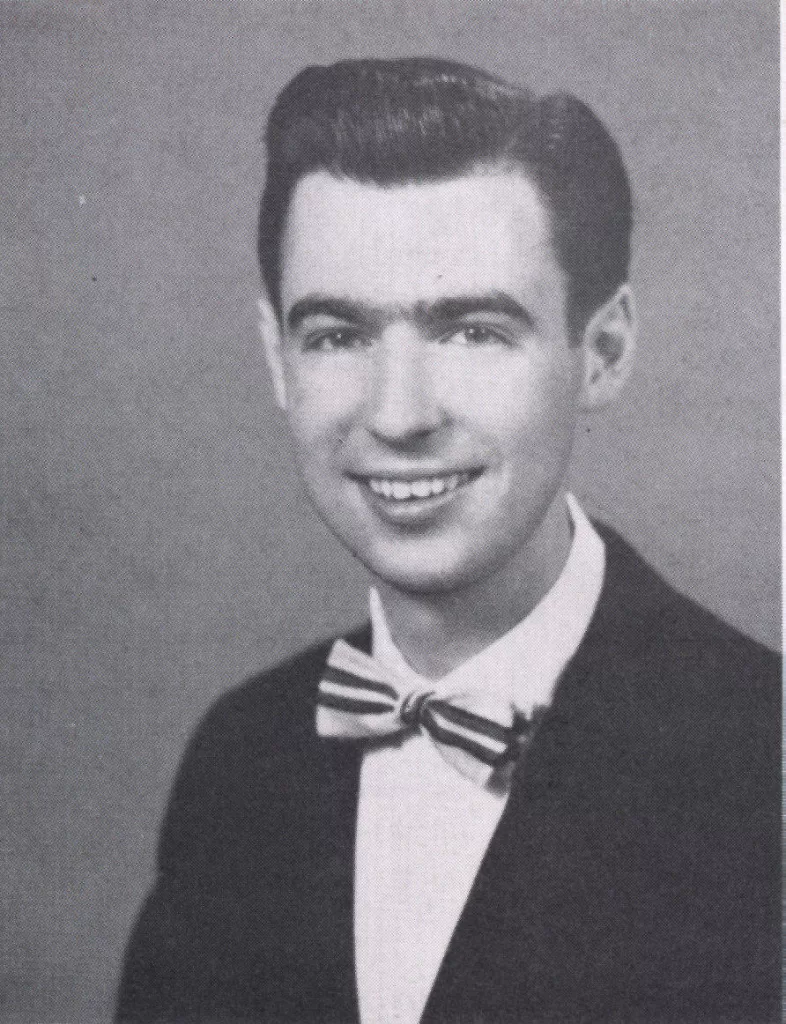
Fred Rogers was born on March 20, 1928, in Latrobe, Pennsylvania, a small town located approximately 40 miles southeast of Pittsburgh. His father, James Hillis Rogers, was a successful businessman and president of the McFeely Brick Company, one of Latrobe's most prominent businesses. His mother, Nancy McFeely Rogers, was a dedicated volunteer at the local hospital and spent her time knitting sweaters for American soldiers during World War II.
Growing up in a large three-story brick house, Fred Rogers was an introverted and overweight child who suffered from asthma. He was often bullied for his weight and was called “Fat Freddy” by his peers. Despite his difficult childhood, Rogers found solace in playing with puppets and learning to play the piano. His interest in music would later lead him to pursue a degree in the subject.
After graduating from Latrobe High School, Rogers attended Dartmouth College for one year before transferring to Rollins College in Winter Park, Florida. There, he graduated magna cum laude in 1951 with a Bachelor of Music degree. Rogers then went on to earn a Bachelor of Divinity degree from Pittsburgh Theological Seminary in 1962 and was ordained as a Presbyterian minister in 1963.
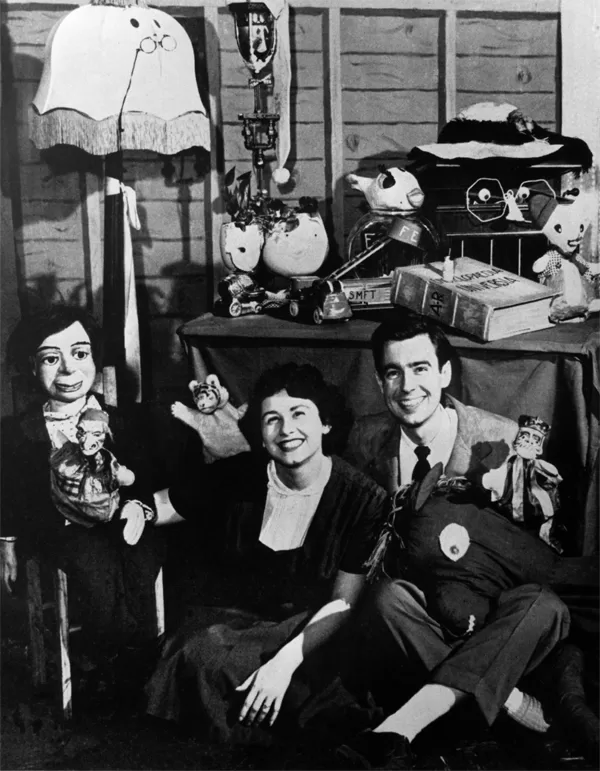
Fred Rogers' fascination with television began during his senior year of college when he saw a TV set at his parents' home. Recognizing the potential of this new medium, Fred decided to pursue a career in television. In 1951, he started working at NBC in New York City as a floor director and assistant producer for various music programs, including Your Hit Parade, The Kate Smith Hour, and The Voice of Firestone.
In 1953, Fred returned to Pittsburgh to work as a program developer at WQED, a public television station. Alongside Josie Carey, Fred co-created the children's show The Children's Corner, which ran from 1954 to 1961. Although he primarily worked off-camera, Fred developed many puppet characters for the show, including Daniel the Striped Tiger, King Friday XIII, and Queen Sara Saturday, who would later become staples on Mister Rogers' Neighborhood.
During this time, Fred also attended Pittsburgh Theological Seminary and the University of Pittsburgh's Graduate School of Child Development. It was there that he began a 30-year collaboration with renowned child psychologist Margaret McFarland, who would become a key advisor for his television work.

In 1963, Fred created and hosted a 15-minute children's program called Misterogers for the Canadian Broadcasting Corporation (CBC). This show marked Fred’s first on-camera appearance, and served as the foundation for his later work in the United States. After acquiring the rights to Misterogers in 1967, Fred returned to Pittsburgh and developed the program into the iconic Mister Rogers' Neighborhood TV show we know and love today.
Premiering in 1968, Mister Rogers' Neighborhood was a groundbreaking educational children's show that aired on public television for 33 years, totaling 895 episodes. The show was produced by WQED in Pittsburgh and broadcast by National Educational Television (NET), which later became the Public Broadcasting Service (PBS).
Each episode of Mister Rogers' Neighborhood began with Fred Rogers entering his television home, changing into his signature cardigan sweater and sneakers, and singing the theme song, “Won't You Be My Neighbor?” The show focused on teaching children about their emotions, relationships, and navigating the world around them. In doing so, Fred tackled difficult topics such as death, sibling rivalry, divorce, and even the assassination of Robert F. Kennedy.
Fred Rogers' unique approach to children's television and early childhood education left a lasting impact on generations of viewers. Throughout his career, Fred received numerous awards and honors, including four Daytime Emmy Awards, a Lifetime Achievement Award from the National Academy of Television Arts and Sciences, and the Presidential Medal of Freedom.
As for his family, Fred met his future wife, Joanne Byrd, while attending Rollins College. They married in 1952 and went on to have two sons, James and John. As a family, Fred and Joanne prioritized spending quality time together and providing a nurturing environment for their children.
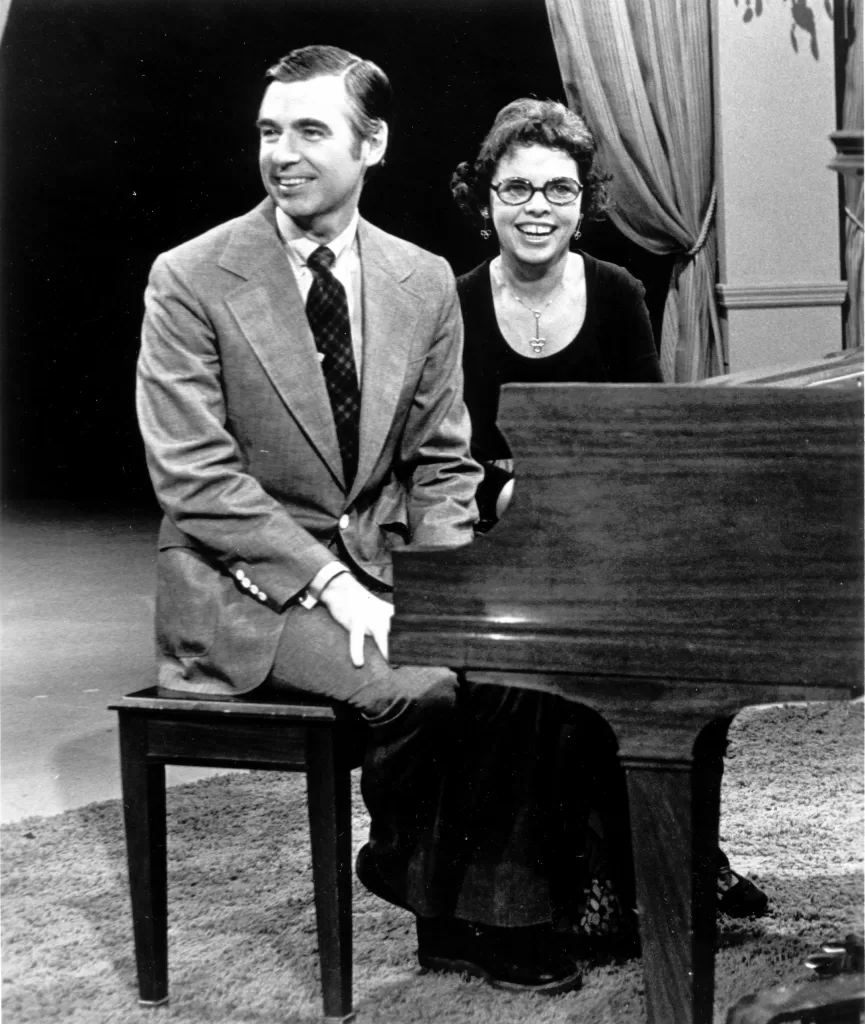
Fred was a deeply spiritual man. Although he rarely spoke about his faith on air, his beliefs heavily influenced the values and lessons he shared on Mister Rogers' Neighborhood. He also studied various faiths and cultures, including Catholic mysticism, Judaism, and Buddhism.
Throughout his life, Fred maintained a simple and frugal lifestyle, despite his family's wealth and his success in television. He was known for his dedication to responding to every letter he received from viewers, considering it a “pastoral duty.”
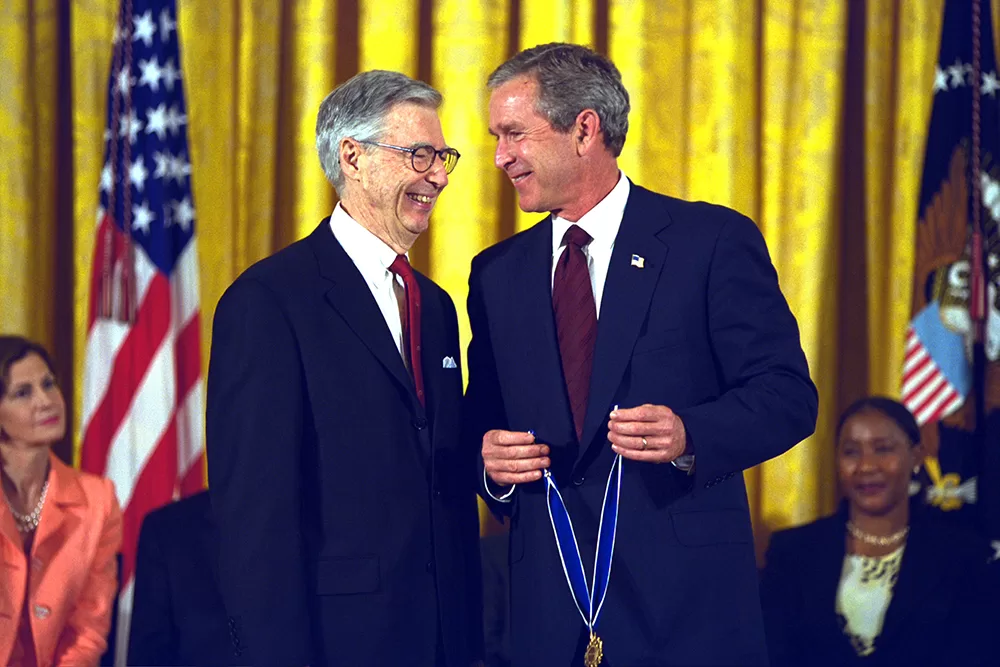
After the final episode of Mister Rogers' Neighborhood was taped in December 2000, Fred continued to work on various projects, including public service announcements and special programs for PBS. However, his health began to decline, and he was diagnosed with stomach cancer in October 2002.
Fred Rogers passed away on February 27, 2003, at 74, with his wife, Joanne, by his side. His death was widely mourned, and his contributions to children's television and early childhood education continue to be celebrated and honored.
Fred Rogers' influence on children's television and early childhood education is undeniable. His work inspired countless individuals in the field, including the creators of popular children's TV shows such as Blue's Clues and Daniel Tiger's Neighborhood (which is a direct spinoff of the Neighborhood of Make-Believe segments from Mr. Rogers’ Neighborhood TV show).

Fred’s life and work have been the subject of numerous books, documentaries, and films, including the acclaimed 2018 documentary Won't You Be My Neighbor? and the 2019 feature film A Beautiful Day in the Neighborhood, starring Tom Hanks as Fred Rogers.
Fred was a pioneer in children's television and early childhood education. Through his groundbreaking show, Mister Rogers' Neighborhood, he taught generations of children essential lessons about kindness, empathy, and understanding. His life and work continue to inspire and impact the lives of countless individuals, proving that his wonderful legacy will live on in the hearts and minds of those who knew him and those who continue to learn from him.
Learn More:

